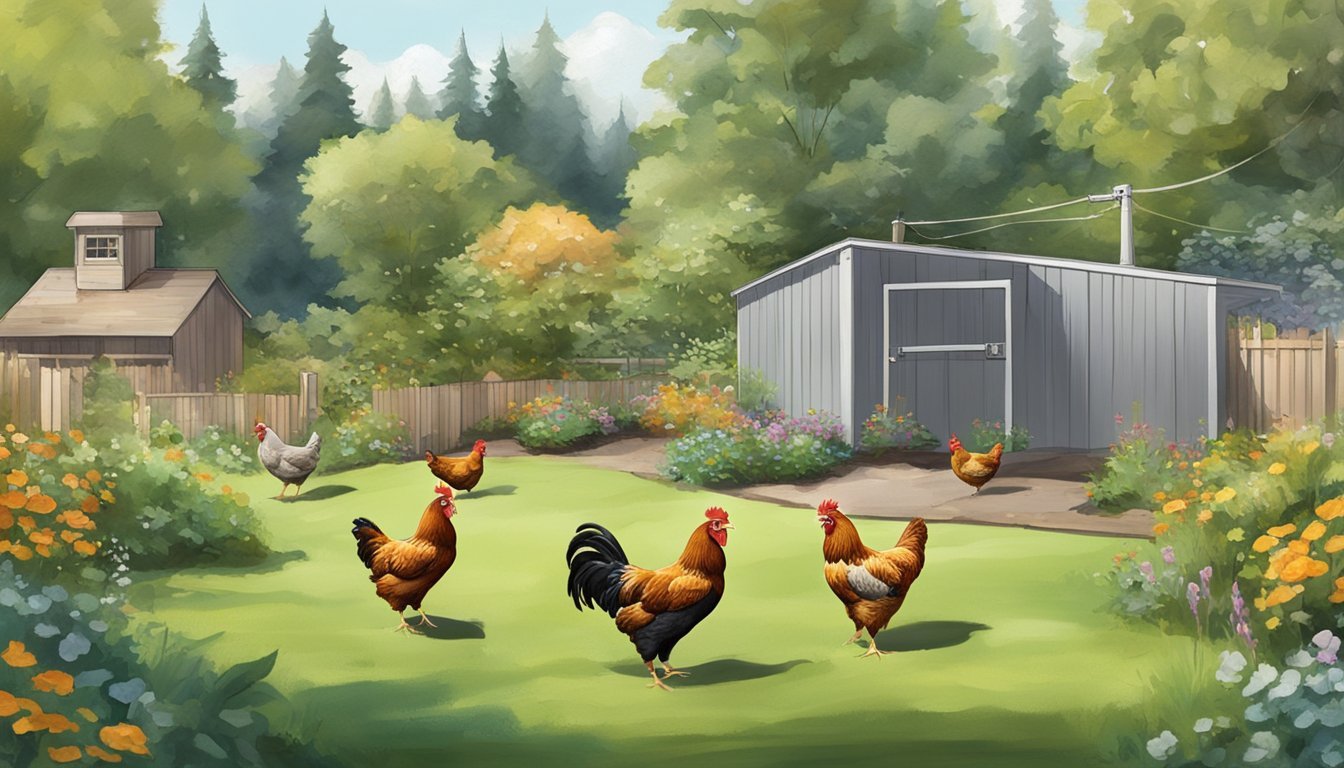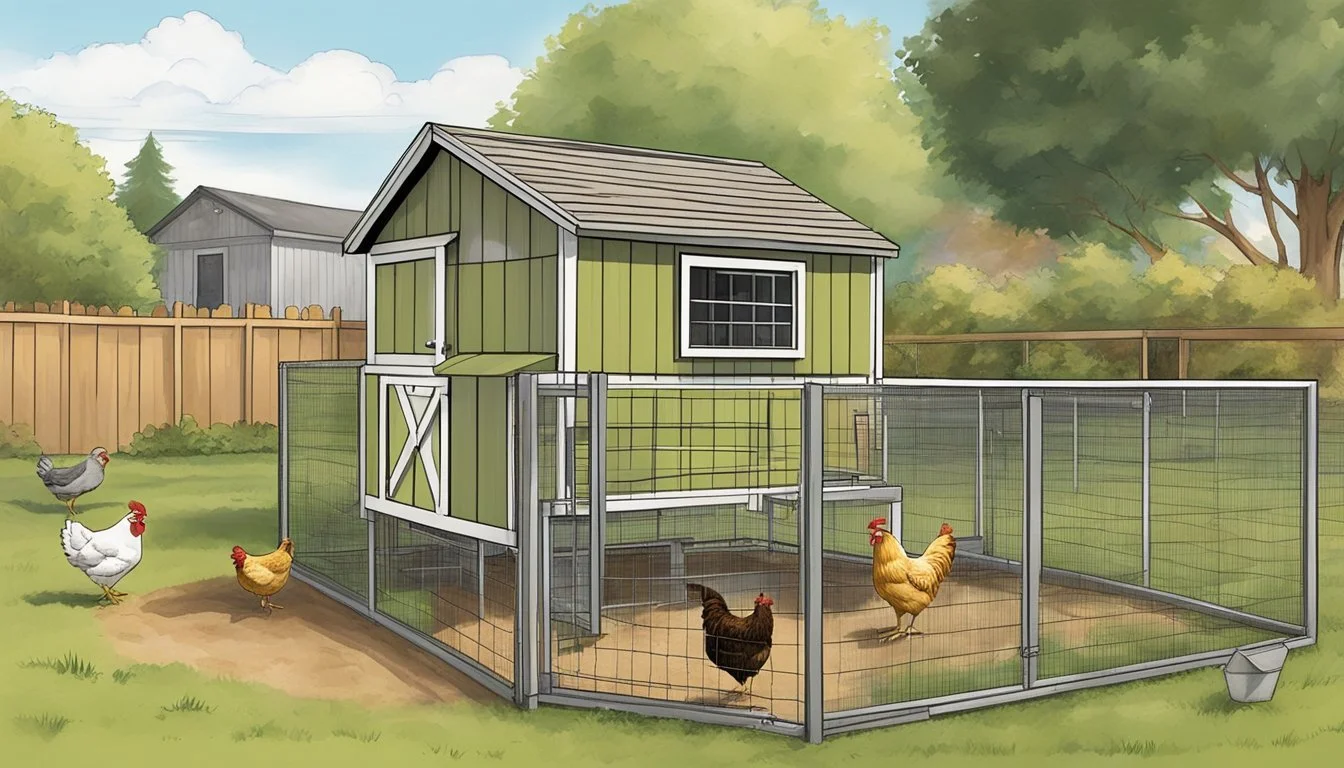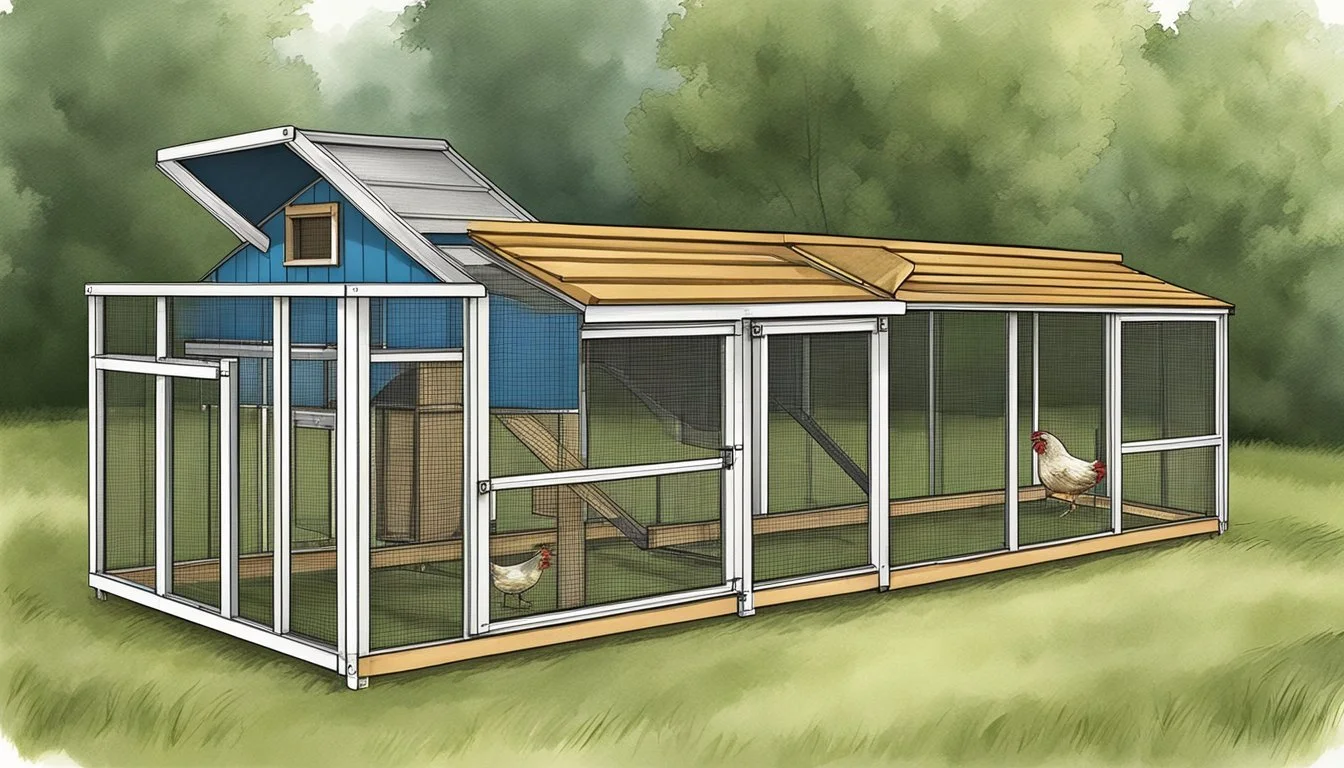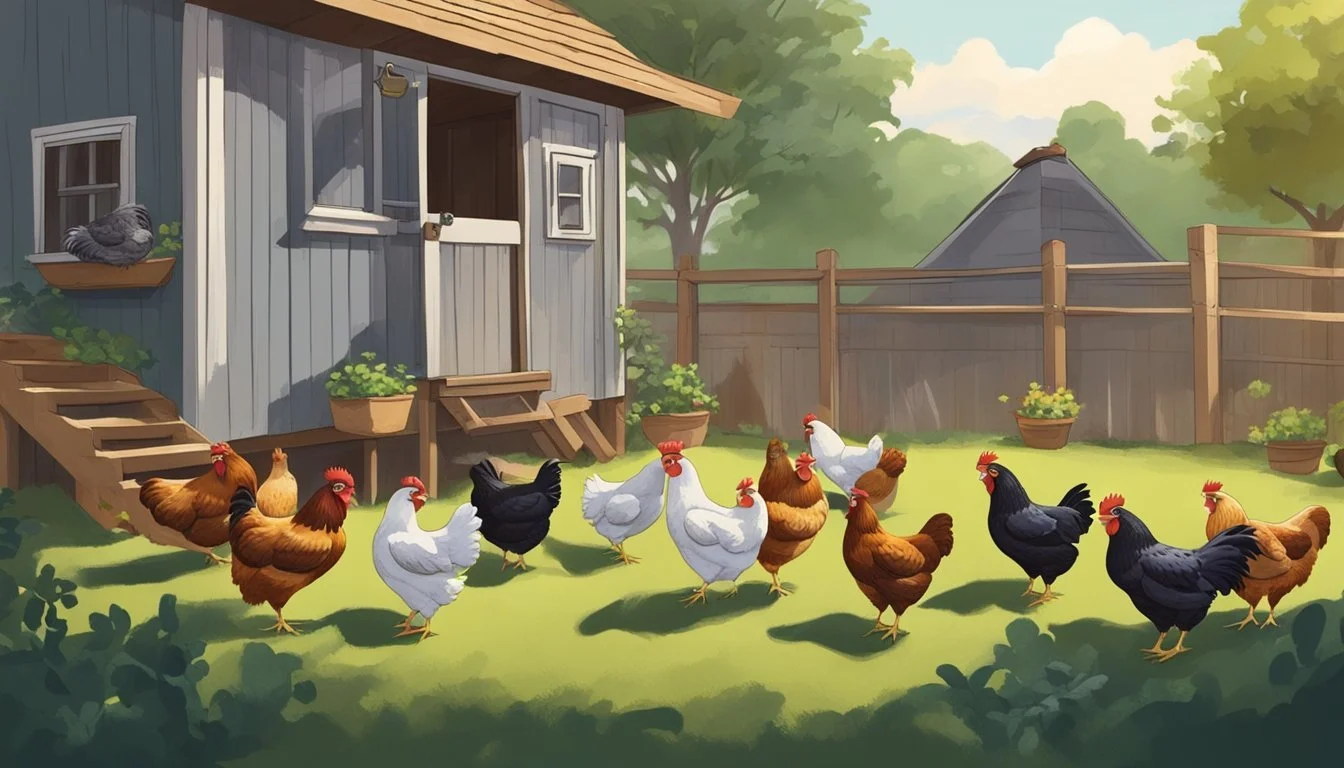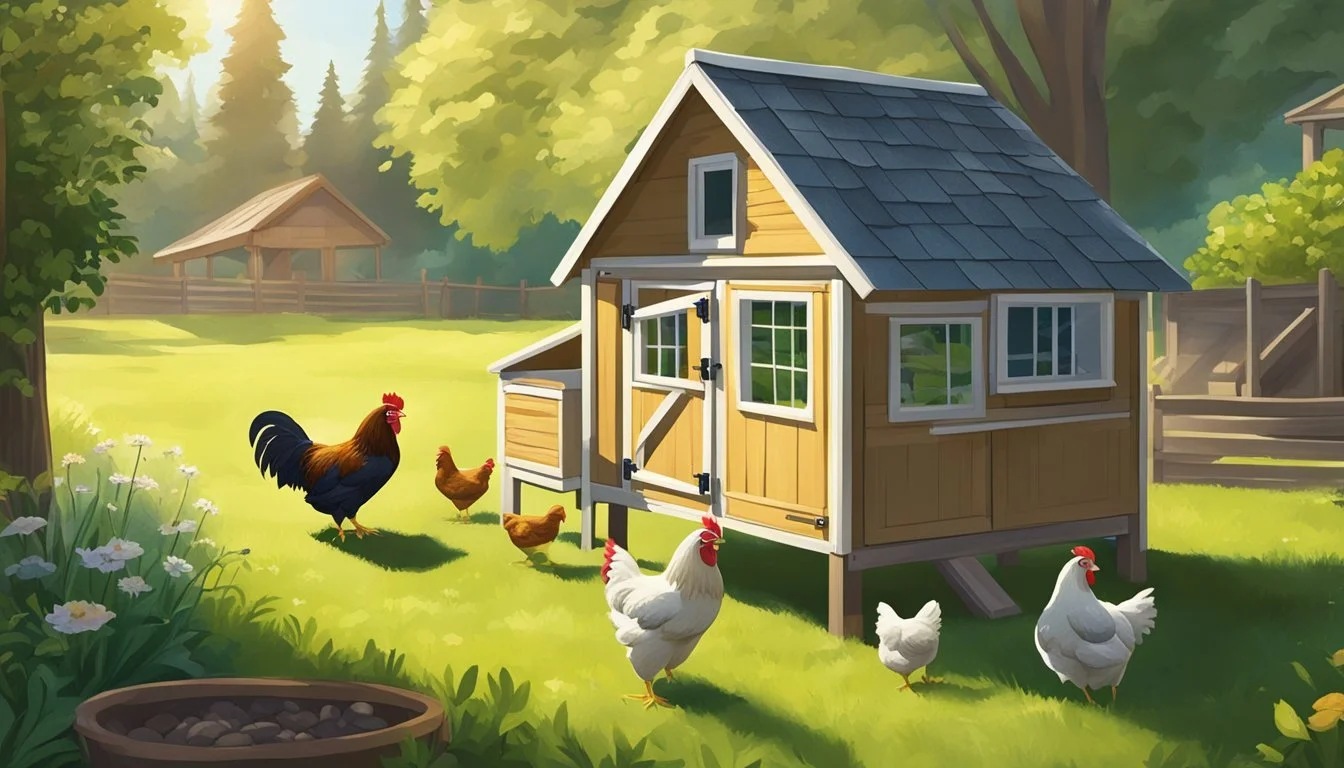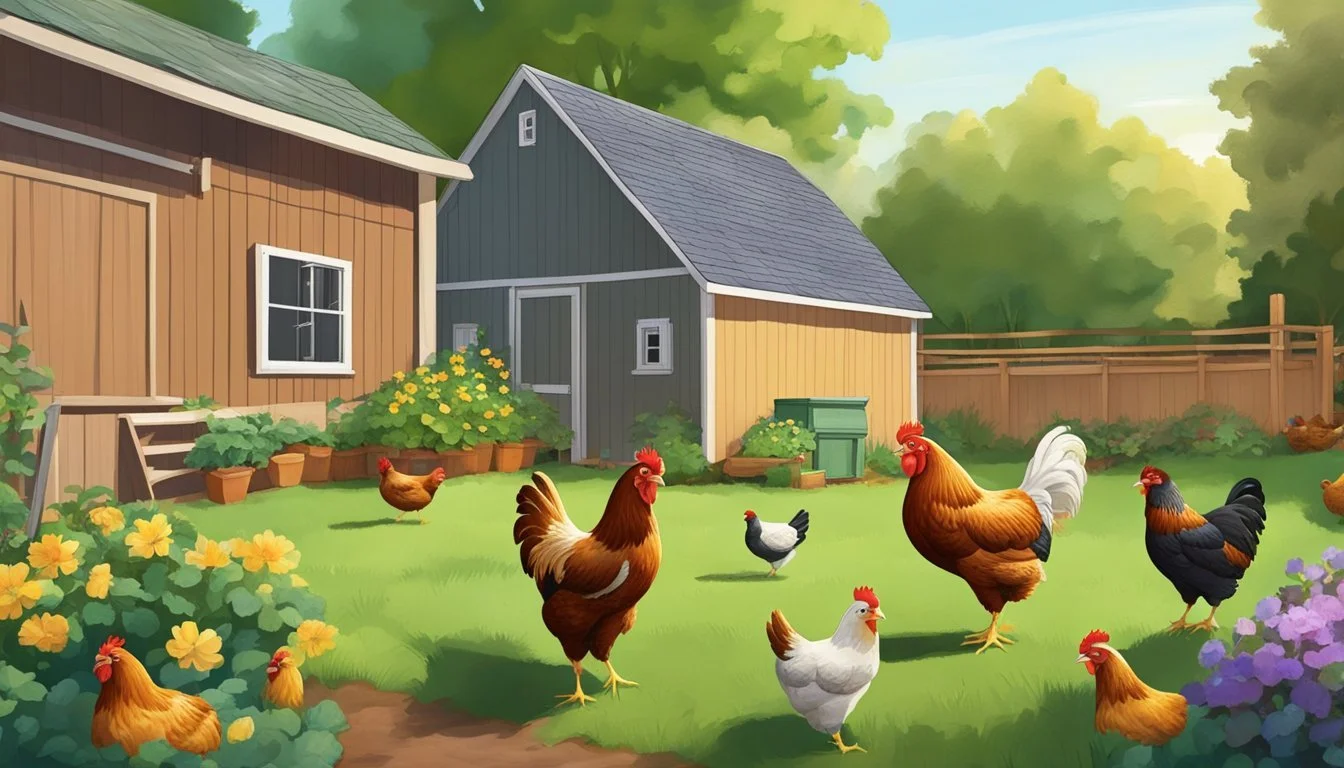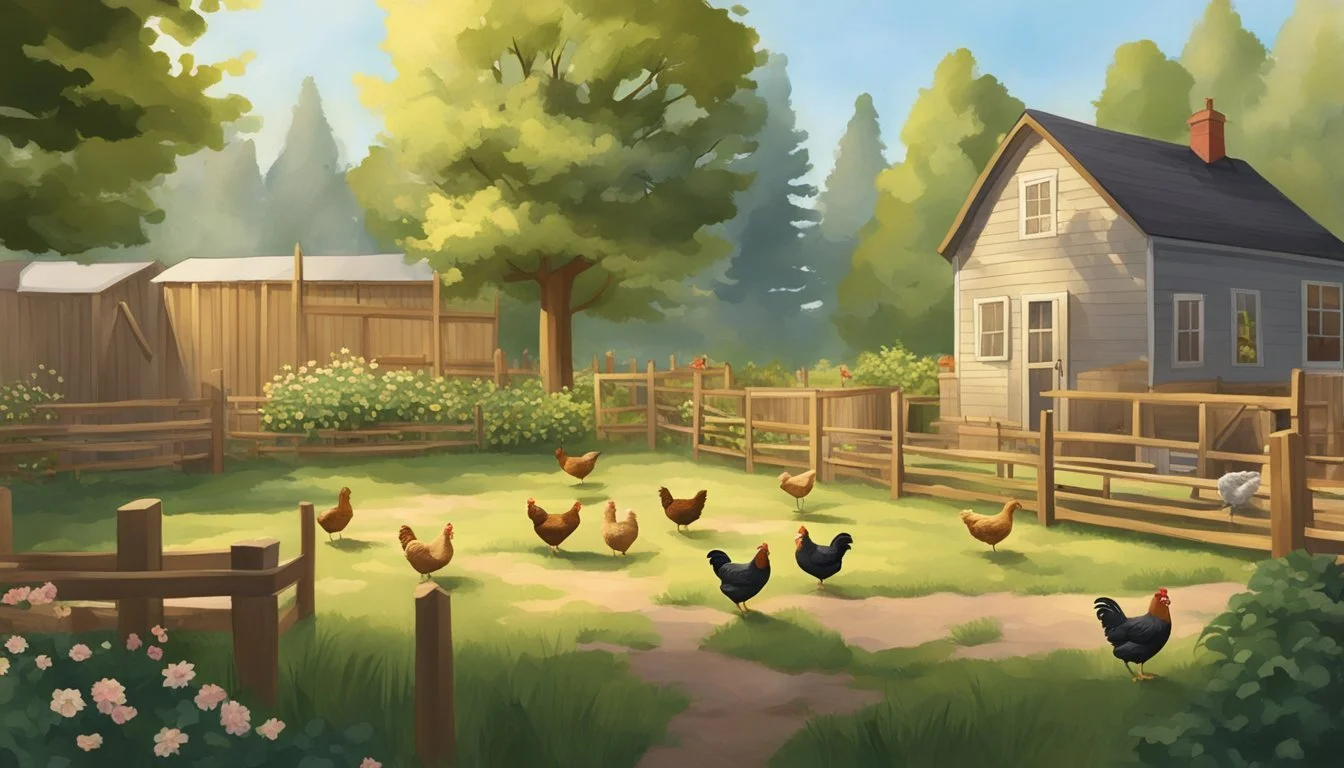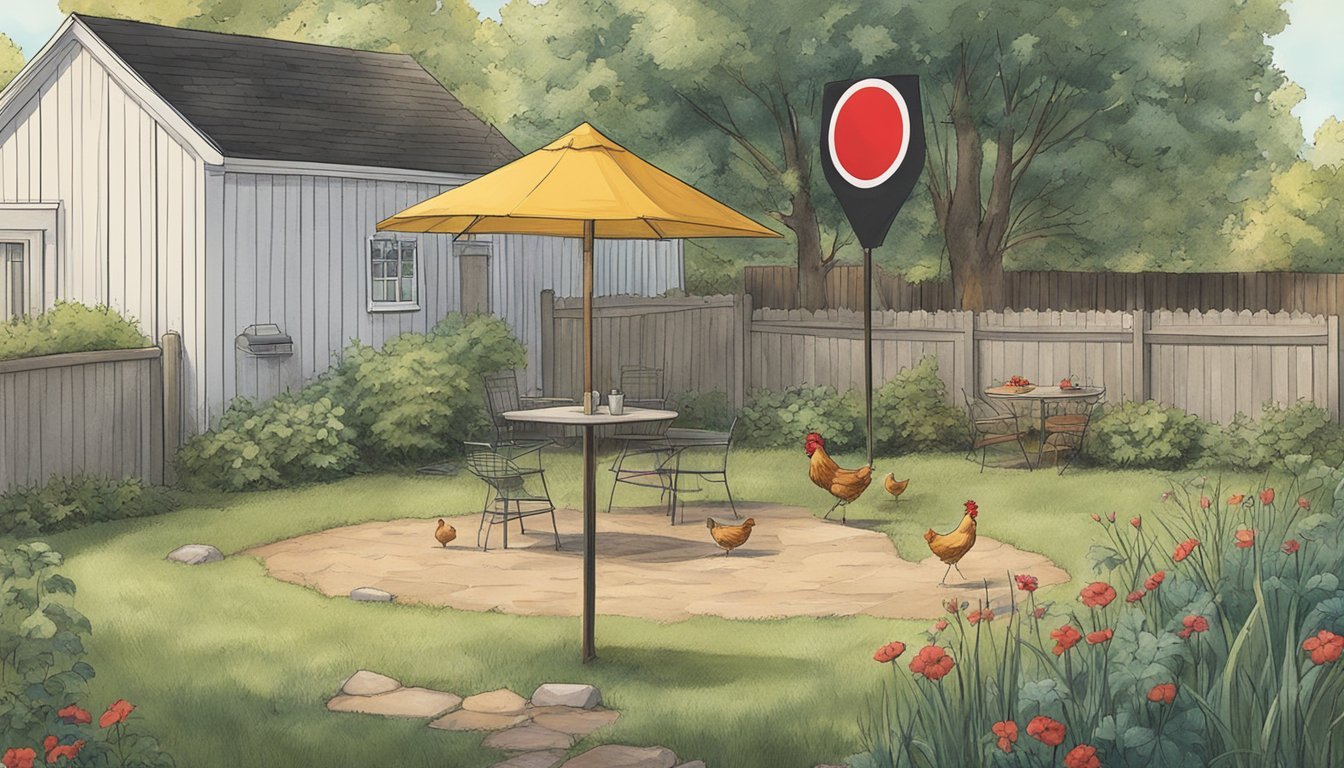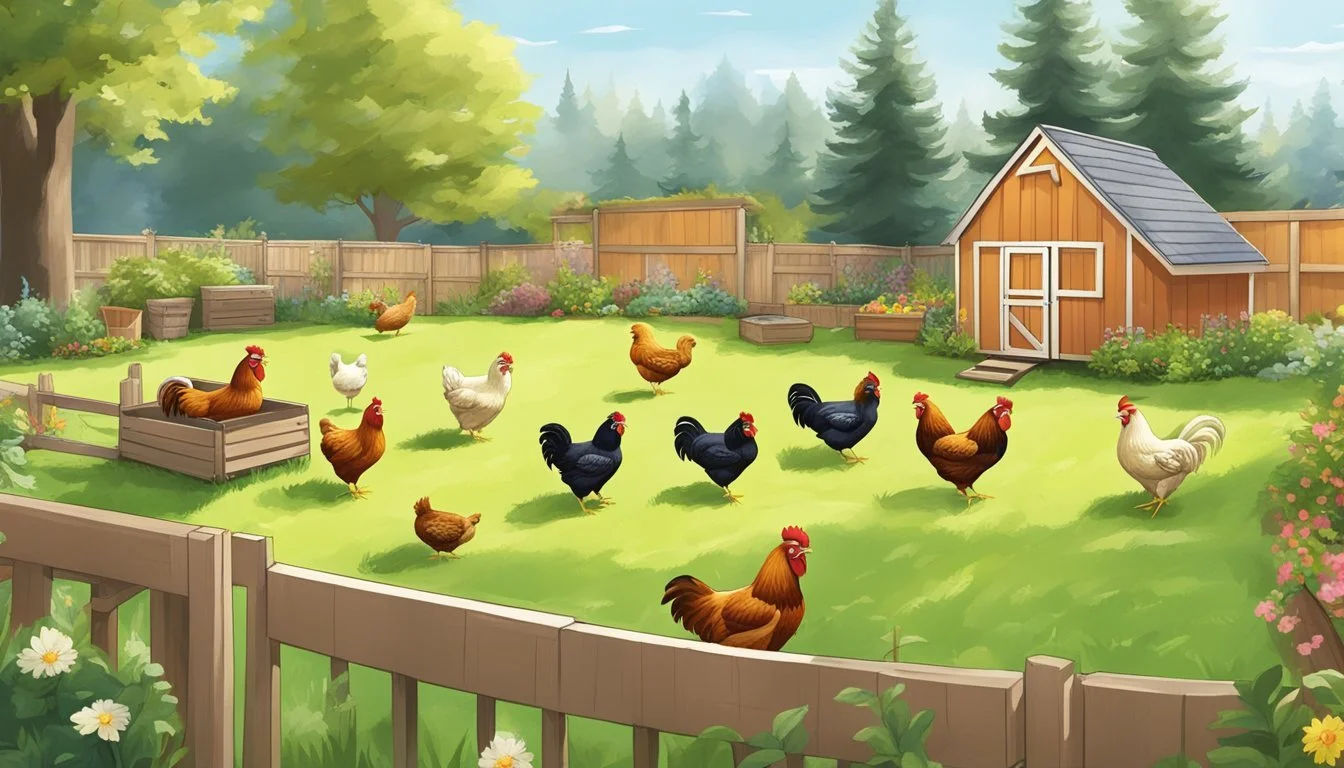Keeping Backyard Chickens in Salem, OR
Essential Guidelines for Urban Poultry Farming
Residents of Salem, Oregon, have the opportunity to join many across the nation in the increasingly popular practice of raising backyard chickens. Within the city limits of Salem, homeowners and tenants who wish to enjoy the benefits of fresh eggs and the joy of poultry keeping may do so under specific guidelines set forth by the city. These regulations are designed to ensure the well-being of the birds, the comfort of neighbors, and the overall community health.
In adhering to Salem's established rules, individuals can maintain a poultry presence comprising hens and ducks without the need for a permit or license, provided they stay within the allowable limits. The city permits up to six of these birds and no more than twelve poultry in total per property, with the clear stipulation that roosters are not allowed to prevent noise issues. Furthermore, maintaining a clean and nuisance-free poultry facility is crucial, which includes properly constructed coops and runways to contain and protect the birds.
The guidelines in Salem are a balance between the urban setting and the agrarian lifestyle of chicken keeping, highlighting the city's recognition of the local community's interest in sustainable living practices. Compliance with these regulations ensures that individuals can responsibly enjoy the benefits of producing their own food while contributing positively to the urban environment.
Understanding Local Laws and Ordinances
Navigating the complexities of local laws and ordinances is crucial for Salem residents who wish to keep backyard chickens and other fowl. This section breaks down the Salem Revised Code and additional regulatory aspects governing poultry keeping within the city.
Salem Revised Code 50.710 Guidelines
Salem Revised Code 50.710 outlines the rules for keeping domesticated birds. Residents are allowed to keep birds such as chickens, ducks, guinea fowl, pigeon, quail (What wine goes well with quail?), dove, and more for the purpose of egg production or meat.
Permit and License Requirements
No permit or license is required for Salem residents to keep up to six hens and ducks combined on their property. Keeping more than this number may necessitate further compliance with local regulations.
Restrictions on the Number of Chickens and Other Fowl
The city places a maximum limit of twelve poultry of any kind per property. Importantly, there is a strict prohibition on keeping roosters within city limits, aiming to reduce noise disturbances.
Nuisance Regulations
Poultry must be kept in a manner that does not create a nuisance. Excessive noise or odors, as well as any unsanitary conditions, can lead to complaints and potential legal action.
Zoning: Residential Agriculture and Exclusive Farm Use
Properties zoned as Residential Agriculture (RA) or Exclusive Farm Use (EFU) may be subject to different restrictions. Property owners should verify their property zone and adhere to the corresponding specific zoning laws relating to poultry keeping.
Choosing the Right Location for Chicken Coops
Selecting a suitable spot for chicken coops within Salem, Oregon, necessitates a careful consideration of property types and zoning regulations along with strict adherence to distance mandates from property lines.
Understanding Property Types and Zoning
In Salem, individuals considering poultry keeping need to identify the type of property on which the coop will be situated. Zoning laws classify properties into various categories like residential, community gardens, school-owned property, and land owned by religious organizations. Each category may have specific property maintenance laws that define permissible activities and structures, including poultry facilities. For instance, in a residential setting, the coop should generally occupy the rear yard area to keep poultry safely contained and maintain the property's aesthetic.
A compliant coop consists of both a sheltered space and an open, enclosed area, known as a runway. The sheltered space, which should not exceed 120 square feet, provides a protected environment, while the adjoining runway allows chickens to roam outdoors safely. Should ducks be part of the poultry mix, the coop must include a water source to cater to their needs.
Distance Regulations: Coops and Property Lines
Regulations concerning the placement of chicken coops in relation to property lines are pivotal for maintaining good neighbor relations and adhering to local ordinances. For a coop and its runway to be properly placed, one must consider:
Noise control: The coop should be situated to minimize disruption from poultry sounds to neighbors.
Odor management: Strategic placement helps avoid the drift of odors towards neighboring homes.
Visual impact: Proper positioning helps the coop to blend with the surroundings and not become an eyesore.
Chicken coops must maintain a set distance from property lines, which ensures that the coops do not infringe upon neighboring properties and allows for ease of access and maintenance. Maintaining this buffer also helps in managing waste and potential runoff, addressing public health concerns.
When setting up a coop, homeowners should consult with local authorities to ensure full compliance with Salem's specific measurements regarding these distance regulations.
Chicken Coop Essentials
For optimal hen health and egg production, a chicken coop in Salem, Oregon, requires a safe and clean environment that caters to both their indoor and outdoor needs.
Indoor and Outdoor Environment Needs
Indoor Space: Each chicken needs a minimum of 3 square feet inside the coop to ensure comfort and to minimize stress. The coop should be predator-proof with strong wire mesh and secure locks, particularly vital in areas where predators such as raccoons and foxes are prevalent.
Ventilation: Adequate airflow prevents moisture buildup and keeps ammonia fumes from waste at bay.
Nesting Boxes: One for every 3-4 hens, lined with straw or wood shavings.
Outdoor Space: Providing at least 10 square feet per chicken in the outdoor run offers sufficient space for foraging and exercise.
Protection: Overhead cover is needed to shield chickens from hawks and other aerial predators.
Dust Baths: A section for dust bathing is necessary for feather maintenance and parasite control.
Maintaining a Clean Supply of Water
Chickens require access to fresh water at all times. Waterers should be cleaned regularly to prevent the growth of harmful algae and bacteria.
Water Containers: Should be sturdy and tip-resistant.
Placement: Elevated platforms can help keep water clean by preventing bedding and waste from contaminating it.
Certain breeds enjoy water, so providing a shallow wading pool or tub during warmer months can encourage natural behavior and help chickens stay cool.
Daily Maintenance and Noise Control
Effective daily maintenance of backyard chickens ensures a hygienic environment and helps in managing noise, thus preventing any nuisance to the neighborhood.
Preventing Odor and Sanitation Issues
Sanitation is crucial in a backyard poultry setup to prevent odor and maintain a healthy environment. Regular cleaning of the coop is necessary; it should be done at least once a week to remove droppings and refresh bedding materials. Using absorbent materials such as straw or wood shavings can assist in odor control. Additionally, the chicken's outdoor area, or run, should be spotless to prevent odor buildup.
To mitigate any issues with flies or pests, owners must ensure all food is stored in sealed containers and that water sources are clean, with no stagnant water allowed to accumulate, as this can quickly become a breeding ground for pests.
Handling Noise Complaints
Noise control is an important aspect of urban poultry keeping. Since roosters are not permitted due to their loud crowing, most noise complaints should be minimal. However, hens can still create noise, especially during egg-laying times. To handle potential noise complaints:
Provide enough space and enrichment in the coop and run to reduce stress-induced noises.
A well-structured coop can dampen the sound, and strategic placement away from neighboring property lines reduces noise travel.
Engaging with neighbors and addressing any complaints swiftly demonstrates responsibility and may prevent official complaints.
By following these guidelines, chicken owners can maintain a harmonious relationship with their community while enjoying the benefits of raising poultry.
Health and Welfare of Backyard Chickens
When keeping backyard chickens in Salem, OR, it's imperative to prioritize their health and welfare. This involves taking measures to prevent diseases and parasites, which are crucial for maintaining a healthy flock.
Preventing Diseases and Parasites
The Humane Society of the United States emphasizes the significance of cleanliness and proper care in preventing diseases in backyard chickens. Owners should regularly clean coops and change bedding to minimize the risk of disease. It's also recommended to quarantine any new chickens before introducing them to the existing flock to prevent the spread of potential illnesses.
Vaccinations should be considered as they can protect chickens from common diseases. Owners are advised to consult with a veterinarian to create a suitable vaccination schedule.
Parasite control is another critical aspect. Chickens are susceptible to external parasites like mites and lice, as well as internal parasites including worms. Regular inspections of the chickens' skin and feathers, alongside periodic deworming, should be part of a routine health care plan.
Owners must also be aware of the signs of disease, such as changes in behavior, appearance, or egg production. Rapid response to such signs by seeking veterinary care can help in controlling the issue before it spreads. Keeping a close relationship with local authorities and poultry health experts ensures access to up-to-date information on any outbreaks or health concerns in the region.
To sum up, maintaining strict hygiene practices, being vigilant for signs of disease, employing preventative measures like vaccination and parasite control, and staying informed through veterinary and local resources are key strategies for safeguarding the health and welfare of backyard chickens.
Community Integration
Raising backyard chickens in Salem, Oregon facilitates community engagement and educational opportunities. Civic programs foster practical learning experiences regarding sustainable living and food production.
Community Gardens and Educational Outreach
The integration of chicken keeping into community gardens has been an effective means to educate the public on sustainable food practices. These gardens, often located on school-owned property or property owned by religious organizations, become living classrooms where members of all ages can learn about urban agriculture. They host hands-on workshops covering topics such as hen husbandry, coop construction, and responsible egg production.
School-Owned Property:
School gardens incorporate chicken-keeping into their curriculum
Students gain firsthand experience in caring for chickens
Application of biology, ecology, and nutrition education
Religiously Affiliated Gardens:
Many feature cooperative gardening projects
Utilize chicken keeping to teach stewardship and social responsibility
Often open to wider community participation beyond their members
The involvement in community gardens and educational outreaches also promotes a sense of unity and shared purpose within the neighborhood, creating a cooperative environment where individuals work together to maintain the garden and care for the chickens. These communal efforts not only provide a source of locally-produced eggs but also enrich the community's understanding and appreciation for local food sources.
Understanding Exemptions and Special Cases
In Salem, Oregon, backyard chicken enthusiasts must navigate specific local laws to ensure their practices align with the city’s ordinances. These regulations are designed to maintain community standards and animal welfare.
Guideline Exemptions
Certain properties in Salem are exempt from the standard regulations concerning the keeping of poultry. These exemptions typically include:
School-owned property: Schools may utilize poultry for educational purposes.
Religious organization property: Facilities owned by religious entities may have different allowances for poultry keeping.
Local Chicken Laws
Salem has clear guidelines for residents who wish to keep chickens:
A maximum of twelve poultry are allowed per property.
No roosters are permitted due to noise concerns.
Up to six hens and ducks can be kept without a permit or license.
Poultry Facilities
Salem defines a "poultry facility" as a combination of a coop and a runway. These facilities must adhere to certain standards:
Requirement Description Confinement Chickens and ducks must be kept within their designated facility at all times, with the exception of being under direct control by the owner or custodian. Water Source A clean water source must be provided for ducks, which is sufficiently large for the entire body and allows submersion of the head.
Oregon Chicken Ordinances
Statewide ordinances complement local laws by providing overarching guidelines, ensuring that backyard poultry practices do not conflict with state-level regulations. For instance, these may involve health and safety standards or statewide bans on certain breeds.
Residents contemplating poultry keeping in Salem should consult the latest city and state regulations to ensure compliance with current laws, particularly as codes can be subject to change.
Legal Implications and What to Do When Facing Issues
When residents of Salem, Oregon seek to keep backyard chickens, they may encounter legal challenges. It's critical to understand the city's specific ordinances and, if issues arise, to engage with the legal process in a defined manner.
What to Do When Facing Legal Challenges
If a Salem resident faces legal challenges regarding backyard chicken keeping, they should first consult the city's regulations. Salem has its own set of ordinances pertaining to the keeping of chickens within city limits. These laws usually address the number of chickens allowed, coop construction requirements, and restrictions on roosters due to noise.
Residents should then gather relevant documentation, such as Salem's chicken laws and any correspondence with neighbors or the city council. If there are complaints or legal issues, maintaining clear records is crucial.
Engaging with the city council can be a vital step to resolve issues. Attend city council meetings to present one's case for keeping chickens or to respond to concerns. This allows individuals to directly communicate with city officials who can provide guidance or make decisions regarding local ordinances.
In cases where local laws are unfavorable or unclear, residents can advocate for change. One should review the chicken laws from neighboring municipalities, such as Corvallis, which might offer successful models to follow. Presenting a well-researched argument to the city council, showing the benefits of urban chicken keeping, and discussing how other cities handle this issue can persuade council members to reconsider existing regulations.
Regarding state laws, Oregon doesn’t prohibit the keeping of backyard chickens outright, but local jurisdictions have the authority to implement more restrictive laws. It’s advisable to consult legal counsel when dealing with state versus local ordinances, particularly if the two appear to be in conflict.
When a resident's right to keep chickens is denied, they may seek a legal remedy through the judicial system. Legal action should always be considered a last resort and undertaken with the advice of an attorney knowledgeable in local municipal and Oregon state law.
Conclusion: Benefits of Raising Backyard Chickens
In Salem, OR, residents reap several practical benefits from raising backyard chickens. One compelling advantage is the steady supply of fresh eggs. Chickens produce eggs that are more nutritious and taste better than most store-bought varieties due to their fresh nature.
Sustainability plays a significant role, as backyard chickens contribute to residential agriculture by recycling food scraps into eggs, thus reducing household waste. Additionally, they provide natural garden fertilization through their droppings, enriching the soil quality.
Chickens also contribute to pest control by eating various bugs and insects, which in turn, benefits the garden's health and reduces the reliance on chemical pesticides.
Beyond these utilitarian aspects, chickens can be considered pets offering companionship. They add life to the garden and can be a source of entertainment with their distinct personalities and behaviors.
Lastly, residents who raise chickens are engaging in a form of local food production that promotes food security and lessens the environmental impact of transporting food over long distances.
By maintaining backyard chickens, individuals in Salem, OR, contribute positively to their personal health, the well-being of the environment, and the local economy. They enjoy nourishing food, vibrant gardens, and delightful companions, all whilst upholding the values of sustainable living.

